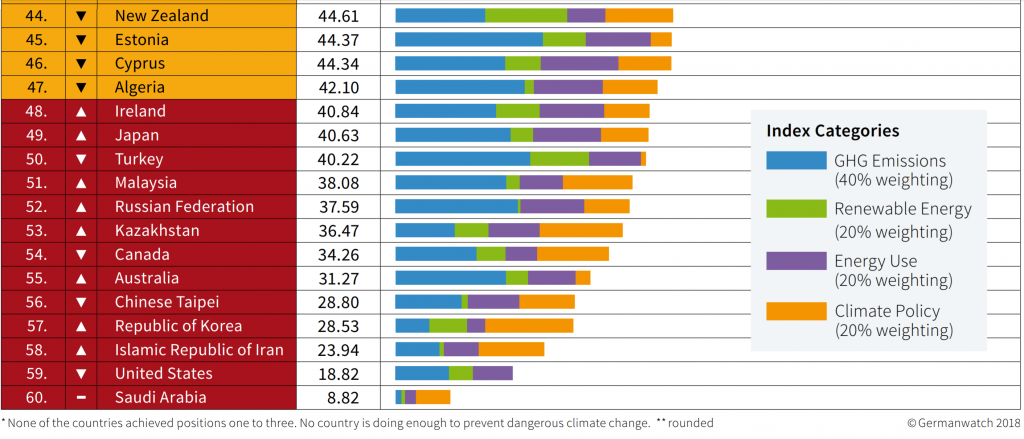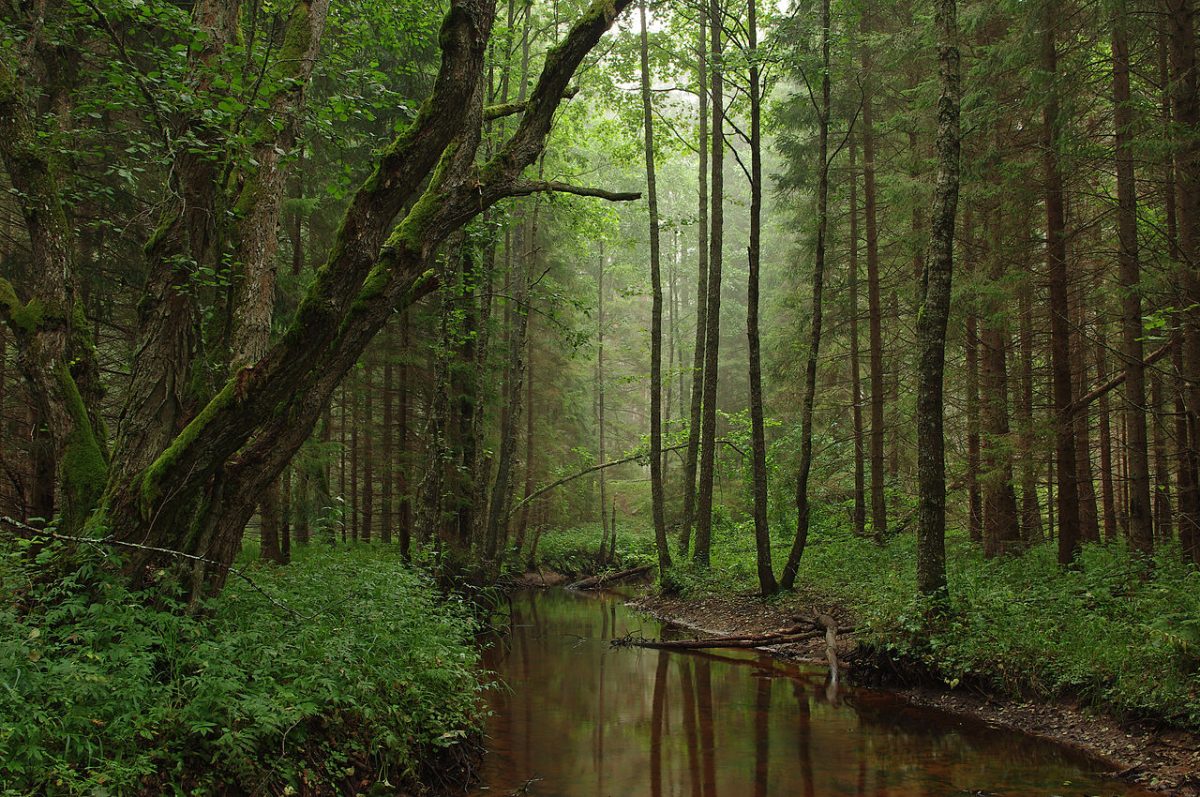Ireland worst in Europe on climate for second year running

December 10th, 2018
Ireland has been singled out as the worst performing country in Europe for taking concrete action to tackle climate change for the second year in a row.
The 2019 Climate Change Performance Index indicates that Ireland has continued along the same climate action trajectory over the past 12 months, placing us 48th of a total of 56 countries examined in the study.
Together, the 56 nations account for over 90 per cent of global greenhouse gas emissions, the joint-report from Germanwatch, the NewClimate Institute and Climate Action Network found.
It ranks countries based on emissions levels, renewable energy take-up, energy use and climate policy, with Ireland performing poorly across all sections.
The top three spots of the CCPI 2019 are still unoccupied because none of the 56 countries or the EU is clearly on a well below 2°C pathway in their overall performance, the groups said.
With comparably good ratings in emissions and renewables Sweden (rank 4) leads the way, closely followed by other European countries including Lithuania (6), Latvia (7), and the UK (8).
The report states, however, that none of the 56 countries is doing enough to achieve the Paris Agreement goals.
Countries must urgently increase their targets and scale up action to implement them, the report finds.

Irish performance
Ireland’s performance in the emissions category is rated “very low”, the report said.
Existing climate mitigation efforts, the Index states, will “not enable Ireland to achieve either its EU 2020 or 2030 targets”.
Ireland is well off track to meet both its 2020 or 2030 climate targets or to decarbonise the economy as planned by 2050, according to the State’s own expert climate advisory body.
The Environmental Protection Agency projects that our emissions will still be 13 per cent above 1990 levels in 2030.
The latest Index is “another deeply embarrassing blow to Ireland’s reputation” in the area of tackling climate change, according to John Gibbons, An Taisce’s Climate Change Committee spokesperson.
“To be ranked as the very worst in the EU28 is a stunning indictment of political failure to stand up to powerful special interest lobbyists as well as refusing to face down huge complacency and inertia within the public and semi-state sectors,” Mr Gibbons added.
Ireland’s performance as the worst in the EU well and truly shows that it is a “deplorable member” of the group of very-low performing countries, according to CAN-Europe.
Due to our increased renewable energy share for electricity generation and forthcoming support schemes for renewable heat, Ireland is rated medium in the Renewable Energy category of the Index.
The report also commended the Dail for its “leadership” in passing the world’s first ever Fossil Fuel Divestment Bill brought forward by the Independent Deputy Thomas Pringle.
The Index also calls the Citizens’ Assembly process “innovative” and praised Irish citizens for producing “far-reaching recommendations for climate action”.
Last November, the Assembly voted for recommendations such as the establishment of a carbon tax on agricultural emissions, the phasing out of peat subsidies and increased spending on sustainable public transport.
Members also voted for the establishment of a new well-funded independent body with a broad range of functions and powers to urgently address climate change.
This body would propose ambitious five-year national and sectoral targets for emissions reductions and, importantly, have the power to legally challenge the State if it fails to “live up to its legal obligations relating to climate change”.
The recommendations are currently being analysed at the special joint Oireachtas Climate Action committee.
Time to step up
The report’s release comes just one day before Ireland’s new Minister for Climate Action Richard Bruton TD prepares to address the UN climate summit in Poland.
Last week, Mr Bruton said that Ireland will fail to meet our 2020 target of reducing emissions by 20 per cent below 2005 levels.
During the recent economic crash, we were relatively in line with our targets, Mr Bruton said, but once the economic recovery took hold “we failed to break the link” between economic growth and rising emissions.
Current projections, he said, indicate that we are likely to also achieve a one per cent reduction, leaving us 95 per cent off target.
In order to close this gap, Ireland will need to spend between €6m and €13m on carbon credits, bringing State spending on emissions allowances up to around €120m since 2007.
[x_author title=”About the Author”]







